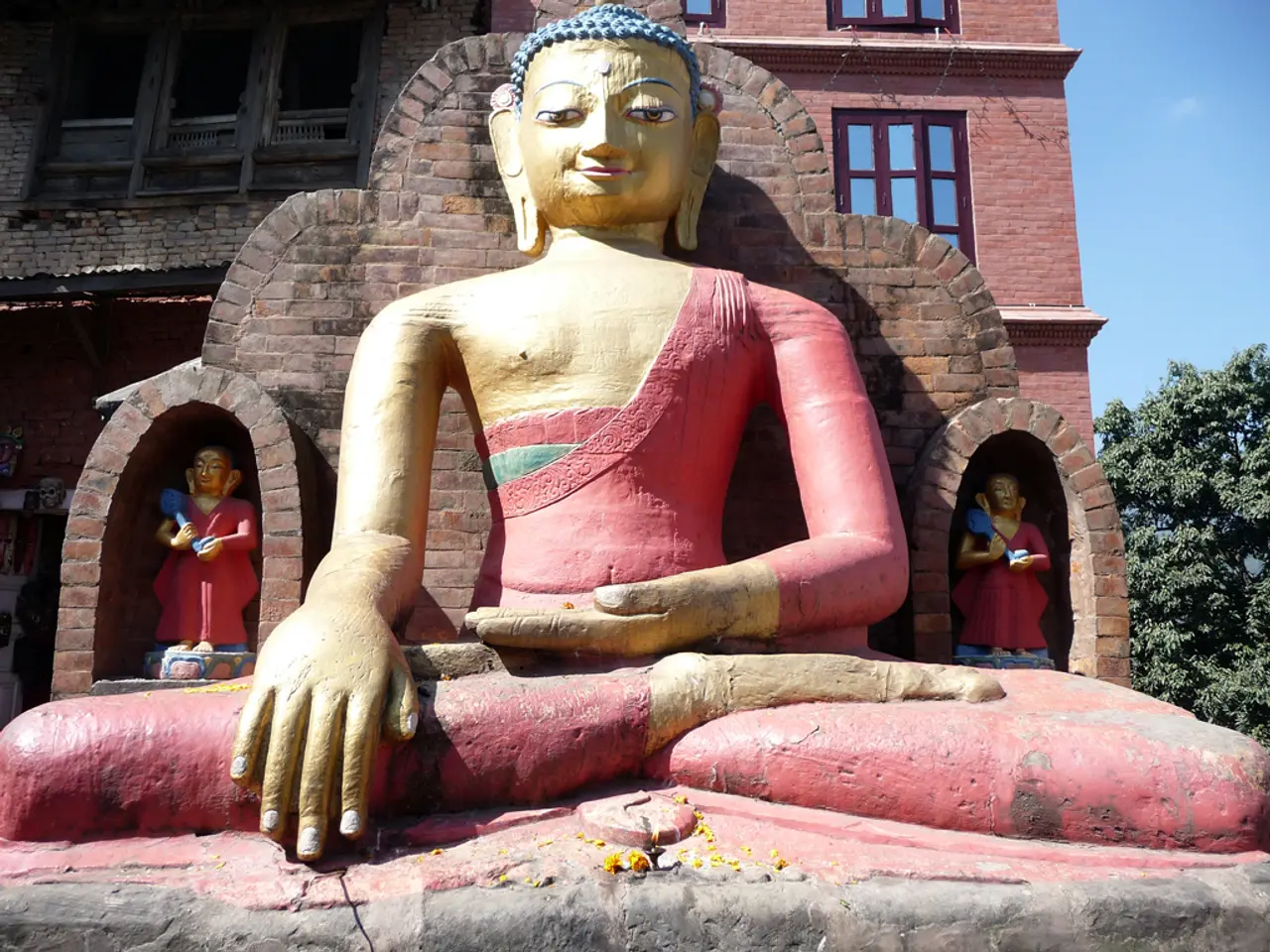Guide to Dream World's Mystical Realms
In the Baha'i faith, dreams are not explicitly outlined in a specific doctrine, but they can be inferred from broader spiritual teachings. The Baha'i viewpoint on dreams emphasises their potential significance in spiritual growth and development, as well as their connection to spiritual travel and future guidance.
Dreams can be seen as a part of the human experience, offering insights into spiritual realms or higher states of consciousness. The Baha'i teachings, which emphasise the concept of a soul and a higher power, support the idea that dreams might be meaningful in spiritual growth and development.
One of the key aspects of dreams in the Baha'i faith is their role in preparation for life after this one. Dreams might encourage reflection on life's purpose and help individuals prepare for a future spiritual life, aligning with Baha'i teachings on the importance of spiritual growth and development.
In terms of spiritual travel, dreams can be symbolic of the soul's journey or spiritual travels within the mind. Dreams can prompt introspection and reflection, which are central to spiritual travel or inner growth in Baha'i teachings. This introspection can help individuals better understand themselves and their spiritual potential.
While Baha'i teachings do not advocate for using dreams for predicting the future, they might be seen as a source of guidance or insight. Dreams can offer personal reflections or warnings that guide an individual's spiritual path. For instance, dreams inspired by spiritual searching, as in the case of Paul Hanley's experience, can lead to deeper spiritual understanding and commitment.
Abdu'l-Baha, the son of Baha'u'llah and his designated successor, called this "spiritual travel". He explained that our spiritual powers and abilities are limitless when we dream. When our spirits transcend "the limitations of sleep" and separate from "all earthly attachments", God allows us to travel through "a realm that lies hidden in the deepest reality of this world".
The world of dreams, according to Baha'u'llah, is within us and has "neither beginning nor end". If a person has deep-seated prejudices, personal likes and dislikes, grudges or ill will, these can distort and falsify any inspired impression that comes to them in dreams. However, the Baha'i writings suggest that dreams can communicate reliable truths, but their accuracy is influenced by the mind of the dreamer.
Prayer can help our spirits connect with our angels and ancestors while we are still here, and we may encounter them in dreams if we are receptive to their wisdom. If a person wishes to enter the world of visions, they should wash their hands and face, put on clean clothes, turn towards the court of the Incomparable, offer a prayer, and lay their head on the pillow, so that the doors of revelation will open and all their desires will be revealed.
In the state of sleep, one can see without eyes, hear without ears, speak without a tongue, and run without feet. Abdu'l-Baha used the analogy of a bird in a cage to explain our freedom when our physical bodies aren't in charge in dreams. Nightmares are often the result of various influences such as fatigue, fear, etc.
Baha'u'llah, the prophet and founder of the Baha'i faith, wrote that there are other worlds besides the one we live in while awake. Abdu'l-Baha identified three types of dreams: confused dreams, which have no truth or meaning; dreams that have a coherent and interpretable meaning; and dreams that are inspired and impart truth.
According to Baha'i writings, we can travel all over the planet "in a dream, in the blink of an eye". The purer and freer from prejudices and desires a person's heart and mind are, the more likely their dreams are to communicate reliable truths. When asked about the immortality of the spirit, Abdul-Baha referred to dreams, suggesting that they offer a glimpse into the spiritual realm and the continuity of life beyond physical death.
In the world of dreams, as perceived in the Baha'i faith, they can serve as a crucial avenue for spiritual development and growth, mirroring a person's inner journey. Additionally, dreams may provide insights into the home-and-garden of one's soul, reflecting broader aspects of an individual's lifestyle and spiritual awareness.




